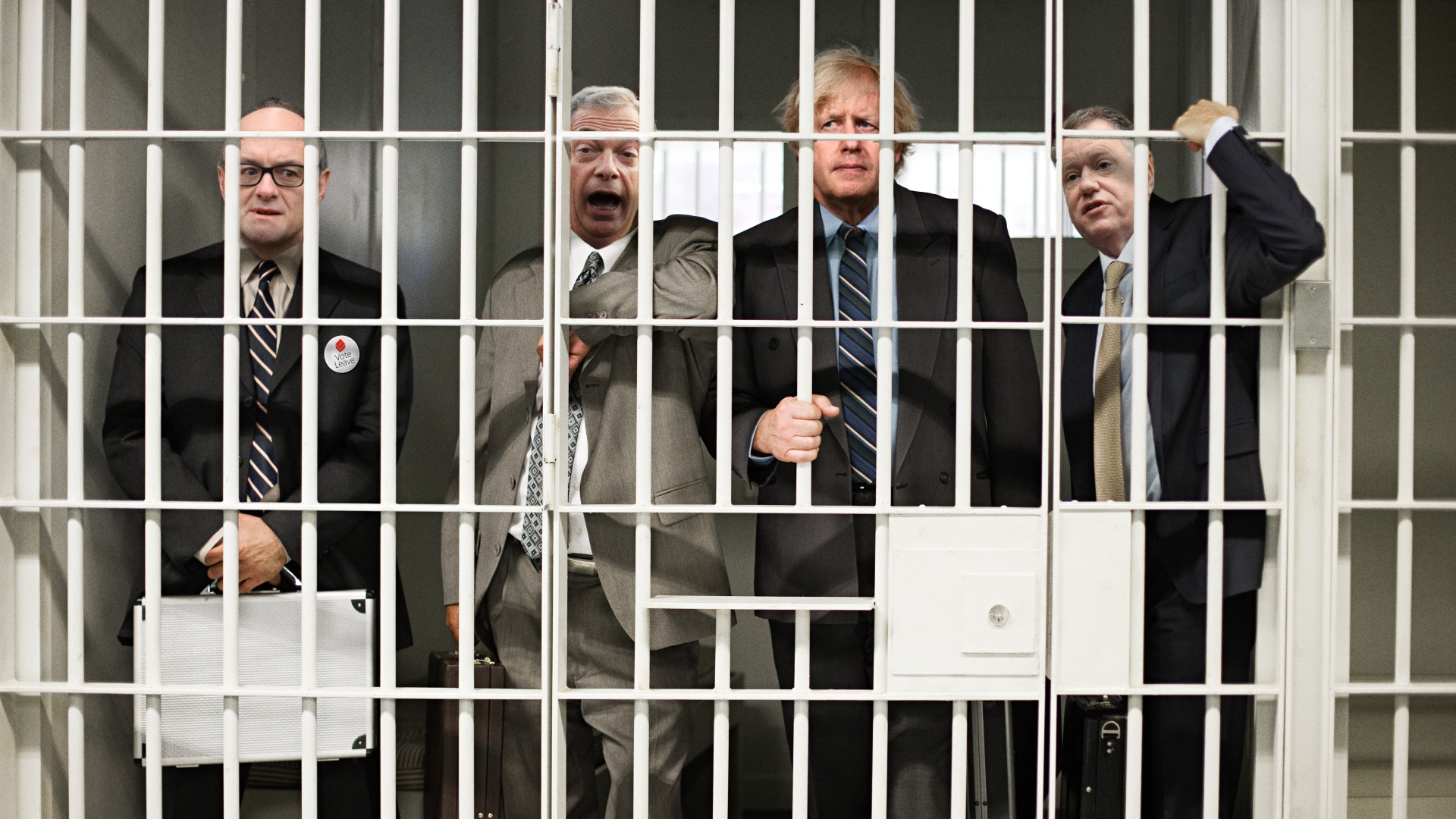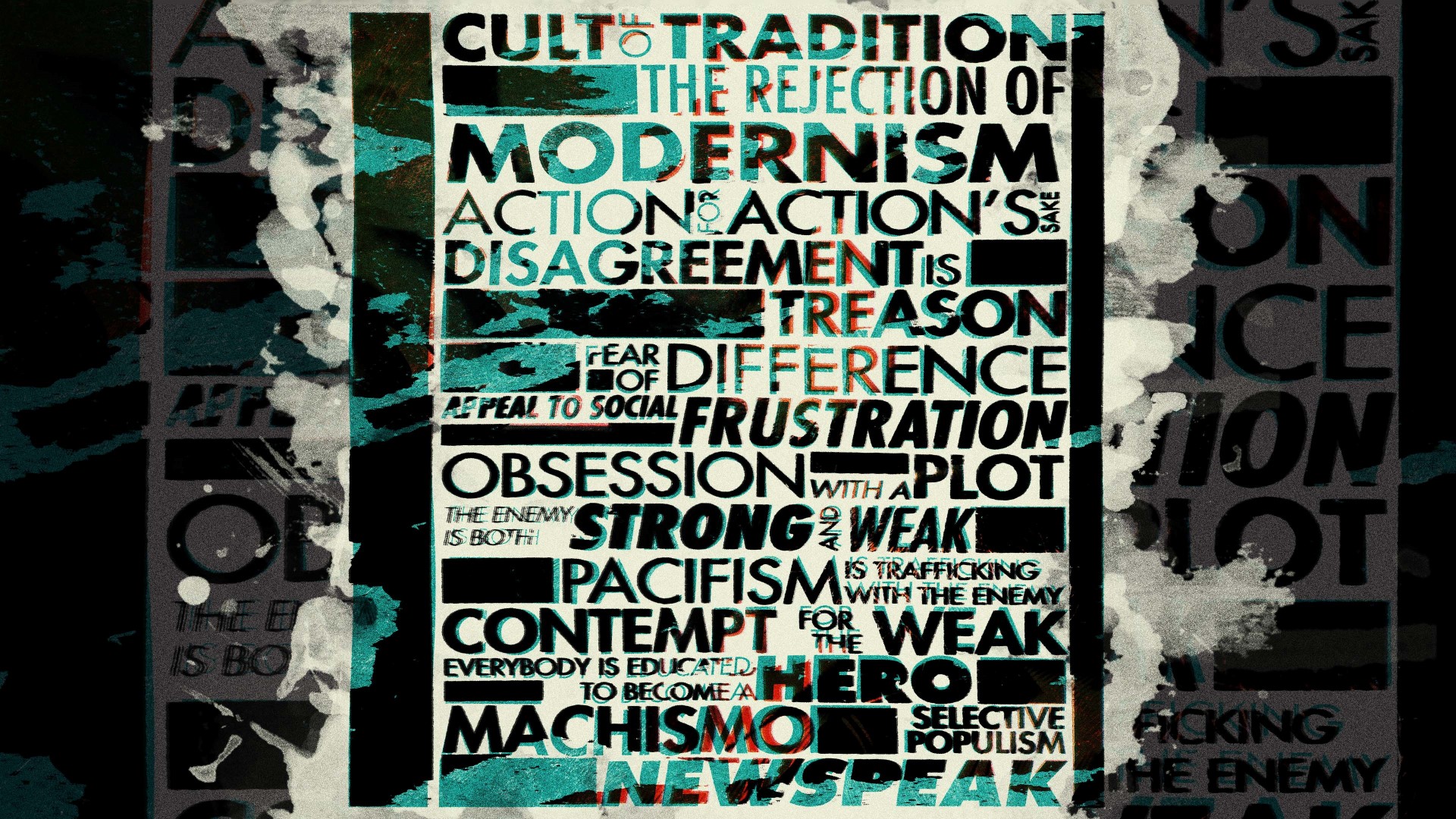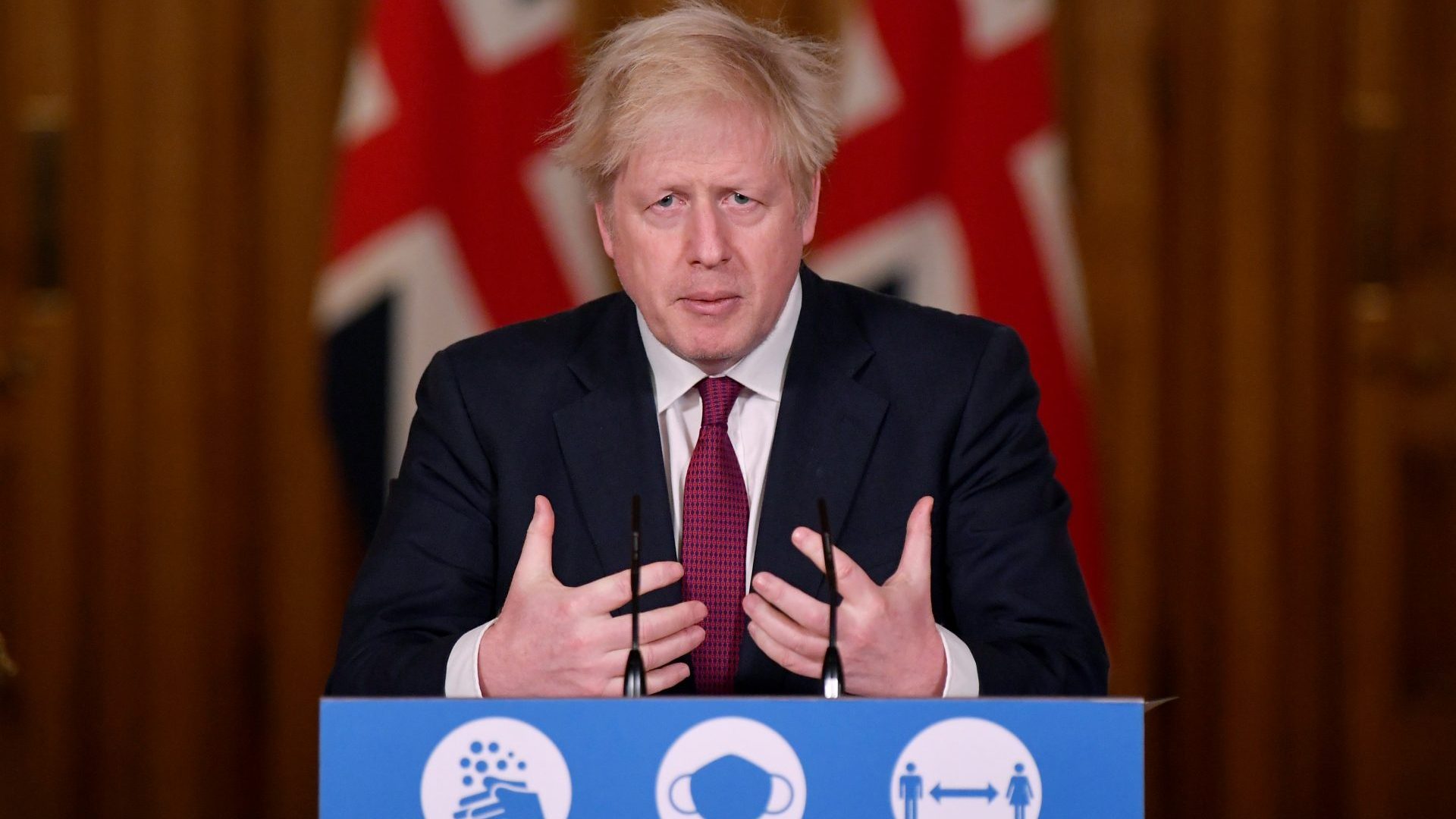Watching the relentless progress of the Covid inquiry makes one thing very clear. We need an inquiry into the other national disaster – Brexit. Specifically, we need to know much more about what happened in the same year that Covid raged, when the final Brexit deal was negotiated. After all, the same reckless fools were in charge of both. Even if titans had ruled the UK, they would have struggled with Brexit alone.
From early 2020 the dark chaos of Boris Johnson’s response to the pandemic was frighteningly obvious. Yet the testimonies of those directly involved still have the power to shock as they conjure up the casual, complacent, determinedly ignorant and jingoistic leadership of Johnson.
The UK was placed in grave danger. As a hopeless prime minister along with a team of bewildered ministers, officials and advisers struggled with Covid, the Brexit deal was being negotiated at the same time. In parallel with the biggest emergency since WWII, one that was sucking all life out of a riven and incompetent government, a historic deal with the EU was being sought, one that would determine the UK’s new place in the world. The same team and the same structures that are currently being exposed in the Covid inquiry as being fatally inadequate left the already fragile UK with a Brexit deal that is as calamitous in different ways as their response to Covid. The difference is that the government’s handling of Covid is getting the attention it deserves. What happened in relation to Brexit remains obscured, partly by the coronavirus saga of 2020 and by the strange political dynamics that have played out since.
Consider first the nightmarish sequencing. The UK formally left the EU at the end of January 2020 but there was a transition as both sides negotiated a new relationship. With an exuberant machismo, Johnson said that a new deal must be in place by the end of the year or else the UK would proceed without any agreement. As with Covid, his response was determined by a shallow “British exceptionalism”. Uniquely, the UK would cope with a pandemic. The UK would also “flourish” with a no-deal Brexit or a hard Brexit.
Weeks after the UK’s formal departure from the EU, Covid raged across Europe. Even the UK belatedly was forced to lock down in March. At which point the EU offered Johnson an extension to the Brexit negotiations, aware that talks via Zoom and the likelihood of senior figures on either side catching Covid made the already complex task even more impossible to finish speedily.
Here the two epic sagas became intertwined through the character of Johnson. The newish British prime minister struggled to take Covid seriously in the early months of 2020. At the same time, he had not bothered to contemplate the tortuous details of Brexit and what they implied. His most senior adviser at the time, Dominic Cummings, suggests that Johnson did not even know how the Customs Union worked. With a swagger Johnson rejected offers of an extended Brexit timescale. The job would be done by the end of 2020 even with Covid killing hundreds of thousands across Europe and with lockdowns in place.
Before long Johnson’s erratic attention span was taken up almost wholly by the demands of Covid and yet the clock for the Brexit deal was ticking in the background, too. Remove Covid, and Johnson would have still struggled with preparing the country for the seismic changes that were bound to follow. Instead, the same characters that have taken us behind the scenes of No 10 at the Covid inquiry were “delivering Brexit”.
As far as Brexit was concerned there was an extra character, the UK’s chief negotiator, Lord “Frosty” Frost, a lightweight courtier who made Matt Hancock seem like Bismarck and Churchill combined in comparison.
In the months that followed, Johnson was in intensive care with Covid, took England out of lockdown haphazardly and, again with huge, confused reluctance, announced another full lockdown before the end of the year. Nearly all his physical energy and wayward attention was taken up by Covid. This gave Frost a lot of leeway in the Brexit negotiations.
At first Frost liaised more with Cummings, who encouraged the out-of-his-depth negotiator to take an aggressive line. Frost did so on the assumption that this would please his patrons in No 10. He wore union flag socks and cufflinks. When the EU proposed elements of a deal that was in the common interest of both sides, Frost would loftily reject them as the UK was opting to roar alone.
Cummings had gone by November 2020, leaving the bewildered Frost to please Johnson alone. Johnson told Frost to be even tougher. Both insisted that they would be happy with “no deal”. Then at the last minute Johnson wobbled, as he did with Covid on a near-daily basis. He instructed Frost to get a deal, but there was only scope by then for the most skeleton of arrangements.
For Johnson, the same calculations were in place as with Covid. Indifferent to detail, he was following his libertarian instincts in relation to lockdowns, and with Brexit his sense of British “exceptionalism” deepened. Partly, he wanted to reassure the right of his party, who were both libertarian and seeking a fantasy Brexit where Britain would rediscover past glories.
During 2020 there was little critical scrutiny of what Johnson was up to, and in the case of Brexit virtually none. On Covid there was broadly cross-party support and a disgracefully doting media that elevated Johnson to a heroic war leader. But there were at least daily press conferences in No 10, and at times in the media and in parliament Johnson was challenged occasionally. On Brexit there was nothing. He and Frost were allowed to get on with it, without being held to account.
Throughout 2020 there were no discussions in the cabinet about the historic negotiation. At Prime Minister’s Questions, Keir Starmer did not ask a single question about Brexit. On Christmas Eve 2020, the cabinet held a Zoom meeting to approve Frost’s Brexit deal. There was not a single questioning voice. Parliament met for a few hours between Christmas and New Year to debate the deal. Labour voted for it.
Theresa May’s Brexit deal was scrutinised in detail, led the bulletins and made the front pages most days for months. The deal was never passed and had no practical impact on the UK. Johnson’s agreement was barely examined but will have serious consequences for the UK in many ways for years to come. Some of those who worked with Johnson doubt that even he read the deal passed to him on Christmas Eve. He had a family Xmas lined up and it would have been out of character for him to miss that to read in full a dense and lengthy text.
In the weeks leading up to the arrangement, Johnson insisted he would be content with no deal. Did he mean it? Was he playing a poker game in which he calculated that he would get a better agreement by threatening no deal? Probably he did not know himself. As with Covid, he changed day by day, which made life difficult for Frost, who was there only on the basis of Johnson’s patronage.
At least over Covid, Cummings felt in a strong enough position to challenge the PM. Frost sought to please, but in his politically naive way did not know whether walking out without a deal would make him even more of a favourite.
Ultimately the UK ended up with an unworkable protocol for Northern Ireland, tariffs for goods leaving the UK to the EU (but the UK economy has been too weak for it to apply reciprocal charges), supply chains being paralysed, a costly set of obstacles to work in the EU even for a single day, travel chaos, acute labour shortages, a nightmare for UK farmers and all the rest of the growth-sapping, quality of life-wrecking measures.
How did it come about? We know the answer at the most basic level. Johnson won a big majority in December 2019 and for a time was the most powerful PM in recent decades. He could do what he wanted.
Margaret Thatcher and John Major had formidable cabinets and parliamentary parties that provided a form of scrutiny and accountability. Tony Blair had Gordon Brown challenging him on a near-daily basis. Brown had the more extreme Blairites seeking to remove him in a series of coups. David Cameron had to work with the Liberal Democrats. May had no majority for much of her rule.
A figure who had run away from any form of scrutiny throughout his life, Johnson ran a government where for a brief but deeply damaging period he was omnipotent. He sought the hardest of hard Brexits without considering what that meant. He chose a pathetic courtier who had struggled to rise in the Foreign Office to carry out the negotiations. But there has been little or no examination of what then followed, the degree to which Frost and his team left the UK in a place of acute vulnerability.
We need to know much more about the other epic event of 2020. There should be a public inquiry on the road towards the Brexit agreement. We would be at least as shocked at the chaos and lack of scrutiny. 2020 was the most portentous year for the UK since 1945.
What we hear at the Covid inquiry is horrifying, but also clarifying. We need to form a similarly clear picture of how the Brexit disaster occurred, particularly when it comes to the negotiation of Johnson’s Brexit deal.
If Starmer wins the next election, he will need the economy to grow. Growth of any significance will only happen if the UK moves closer to the EU. In order to secure the political space to make the move, he must spend some of that political capital on scrutinising what is now clearly the greatest self-imposed political calamity of modern times. Only then can Britain begin the long process of fixing the problems that Brexit has caused, and of reconstructing our relationship with our nearest, largest and most important partner – the EU.
Steve Richards presents the weekly podcast Rock N Roll Politics. His latest book Turning Points: Crisis and Change in Modern Britain includes a chapter on Brexit.




